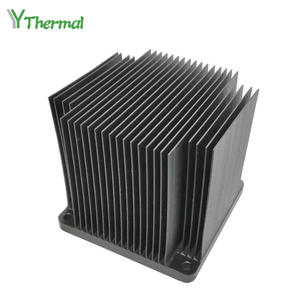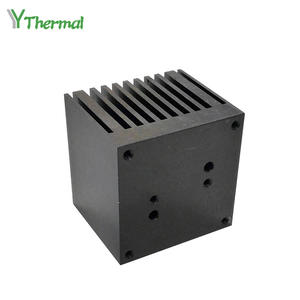
With the change of modern home life style, radiator heating has been recognized by most home heating. Radiator heating is not only efficient and comfortable, but also very in line with the living and working habits of modern people, so more and more people begin to choose radiator heating. In order to achieve a better heating effect, some factors should be considered in the selection of the radiator, and the quality of the radiator should be comprehensively considered from multiple aspects.

A radiator is a general term for a series of devices used to conduct and release heat. Radiators mainly include heating radiators and computer radiators. Among them, heating radiators can be divided into several types according to materials and working modes, and computer radiators can be divided into several types according to their uses and installation methods.
The heat source of the terminal equipment for home heating is generally urban central heating, self-built boiler rooms in residential areas, household wall-hung boilers, etc. The heat is dissipated through heat conduction, radiation and convection, so that the temperature of the room can be raised. Steel radiator, aluminum radiator, copper radiator, stainless steel radiator, copper-aluminum composite radiator, steel-aluminum composite radiator, etc., as well as the original cast iron radiator. The selection of the radiator must consider the following requirements:
The radiator should consider the following elements:
1. Look at the material properties
Traditional heating radiators are typically represented by cast iron radiators and plate radiators. The radiators of this material have serious environmental pollution, low thermal efficiency, slow heat transfer, rough appearance and bulky;
2. Estimate heat dissipation
a. Calculate the total area: calculate the total area of ??the bedroom, living room, bathroom, etc.;
b. Calculate the wattage: Generally, it is estimated according to 45-70 watts/square meter. Of course, it can be adjusted appropriately according to the condition of the house and the warmth retention, so as to calculate the total required wattage;
c. Counting the number of pieces: When purchasing radiators, you can consult the merchant about the thermal power of each piece, and then calculate how many pieces you need.
3. Understand the heating system
The general heating systems are as follows: a. Central heating b. There is a domestic hot water center c. Heating from waste heat from power plants d. Heating by an open pressureless boiler e. Heating by natural gas
4. Be sure to pay attention to identify the inner anti-corrosion layer
Generally, the internal anti-corrosion material of the regular brand radiator is driven by high pressure, without dead corners, air bubbles, and good anti-corrosion; the internal anti-corrosion layer of the small brand radiator is manually poured, and there are dead corners, air bubbles, etc., and the anti-corrosion is poor.
Radiator material:
Steel radiator: mainly include: steel double-column, steel three-column, steel four-column, steel five-column, steel six-column and other radiators
Aluminum radiator: die-cast aluminum radiator, steel-aluminum composite radiator, all-aluminum radiator
Copper aluminum composite radiator All copper radiator
superconducting heat sink
cast iron radiator

The above is the "Consideration Factors for Radiator Material". Yuanyang is a manufacturer specializing in the production of Extruded Heat Sink, Skiving Fin Heat Sink, Heat Pipe Heat Sink and other radiators. Welcome to leave us a message for wholesale custom radiators, etc. product.